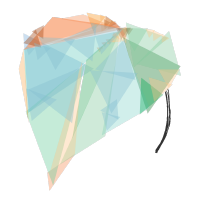ManyBabies Resources
MB Tools & Libraries
MB Policies & Guidelines
MB Repositories
MB Communications
Developmental Science Resources
- CHILDES: A system for sharing and studying conversational interactions of children
- childes-db: A flexible and reproducible interface to CHILDES
- Children Helping Science (Powered by Lookit): Connects parents and researchers via online studies to support developmental research
- Databrary: A data library for developmental scientists to securely store, manage, share, discover, and reuse research data (including videos, audio, precedures, stimuli, and related metadata)
- Kotoboo: Science-based information about language learning in childhood, in the form of comics
- MetaLab: Interactive tools for community-augmented meta-analysis, power analysis, and experimental planning in cognitive development research
- Peekbank: A flexible and reproducible interface to developmental eyetracking datasets
- TalkBank: A system for sharing and studying conversational interactions in general
- Web CDI: An online project of the MacArthur-Bates Communicative Development Inventory Advisory Board
- Wordbank: An open database of children’s vocabulary development
Open Source Software
- Datavyu: A data coding and visualization tool
- Julia: A flexible dynamic language, appropriate for scientific and numerical computing, with performance comparable to traditional statically-typed languages.
- Open Sesame: Create experiments for psychology, neuroscience, and experimental economics.
- Psychopy & PyHab: Create experiments in behavioral sciences (neuroscience, psychology, psychophysics, linguistics…). PyHab is especially developed to measure looking time and manage stimulus presentation for infant research.
- R & RStudio: A free software environment for statistical computing and graphics.
Open Science Resources
- Open Science Framework (OSF): A free, open platform to support your research and enable collaboration.
- BITSS Resource Library
- Contributor Roles Taxonomy (CRediT)
- Directory of Open Access Journals
- Experimentology: An Open Science Approach to Experimental Psychology Methods
- Framework for Open and Reproducible Research Training (FORRT)
- NASA TOPS Open Science 101
- Guide to Git and Github
- Stanford Psychology Guide to Doing Open Science
- StudySwap: A platform for interlab replication, collaboration, and research resource exchange.
- The Turing Way
- UNESCO Open Science Toolkit
Partner Networks & Organizations
- ABRIR: Advancing Big-team Reproducible science through Increased Representation is a working group that aims to diagnose the unique barriers to leadership & participation in Big-team/Open Science faced by researchers from LMICs (low-to-middle income countries)
- Canadian Reproducibility Network: A national peer-led consortium that aims to promote a healthy and vigorous Canadian research ecosystem where all outputs are trustworthy, rigorous, and reproducible
- Children Helping Science powered by Lookit: A platform to connect developmental researchers with parents, and to host and run online experiments
- ManyBirds: A multi-site collaborative Open Science approach that aims to provide new insight into the evolution of avian cognition and behavior through large-scale comparative studies
- ManyDogs: An international consortium of researchers interested in Canine Science
- ManyFishes: A large-scale collaborative project dedicated to comparative cognition and behavior in fishes
- ManyManys: A large-scale collaboration on comparative cognition and behavior across taxa (co-founded by ManyBabies)
- ManyPrimates: A project that aims to facilitate collaboration across study sites in primate cognition research
- Psychological Science Accelerator: A globally distributed network of psychological science laboratories that coordinates data collection for democratically selected studies
- Strengthening Democracy Challenge: Crowdsourced challenge to bring academics, practitioners, and industry experts together in a collective effort to identify effective interventions to improve Americans’ commitment to democratic principles of political engagement
icons courtesy of Flaticon
















